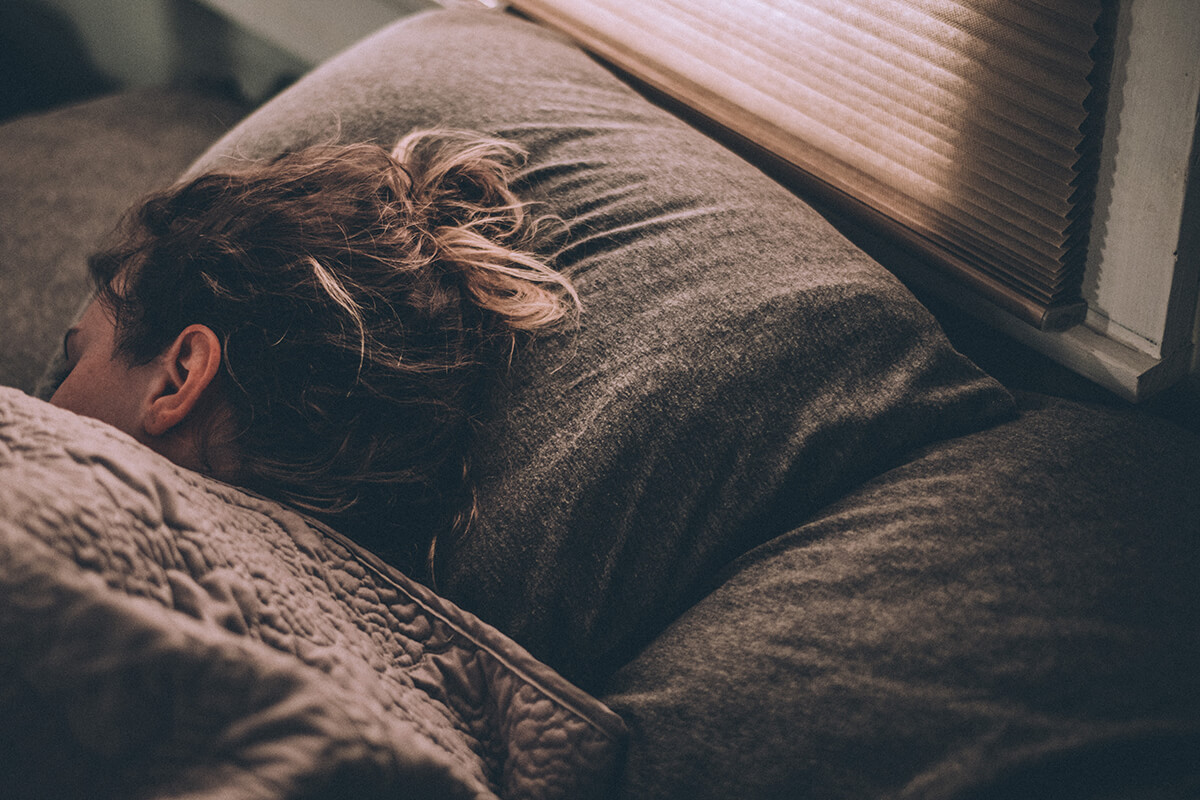Plus 5 Effective Tips for Better Sleep
We’ve all been there—pouring our third cup of coffee by 10 AM because we only managed three hours of sleep the night before. Hoping the afternoon’s meetings are canceled. Sneaking a 30-minute nap in the car while on lunch. And then somehow managing to stay up until 2 AM again that night.
It’s not fun! But sometimes, it’s simply part of adulting. Unfortunately, lack of sleep can have serious consequences on our health, both physical and mental, especially if it’s a regular thing. Sleep is necessary for survival. It keeps us fresh and alert and positively impacts every aspect of our well-being. So the next time you’re starting “just one more” episode at three in the morning, turn to this blog for a little tough love on why you should head to bed and some tips to help you fall asleep once you get there.
Why Is Sleep So Important?
The importance of sleep cannot be stressed enough. Because without it, everything suffers! When you’re asleep, your body is healing from today and preparing for tomorrow. That takes time and can’t be done properly in a mere 3-4 hours.
Adults require between 7-9 hours of sleep each night.[1] (So close Instagram and go to bed already!) This is obviously easier said than done, but if you don’t prioritize your sleep, you won’t have enough time to get through all your sleep cycles. And not properly going through all four stages of sleep on a regular basis will negatively impact your health.
The Stages of Sleep
There are four stages of sleep. The first three are non-rapid eye movement (NREM) sleep, and the fourth is rapid eye movement (REM) sleep. They repeat throughout the night, lasting about 90-120 minutes each.
- Stage 1 NREM: This is that first queue you listen for when your S.O. falls asleep and you can finally change the channel to what you want. You know what we’re talking about—listening for the breath to slow down, watching for the muscles to relax. This is a light sleep stage where eye movements, heart rate, and brainwaves begin to slow as we transition from consciousness to sleep. It typically lasts for a few minutes before Stage 2 kicks in.
- Stage 2 NREM: This is the longest of the four stages. Your breath and heart rate continue to get slower. Your body temperature will drop a bit, and your eye movements will cease altogether.
- Stage 3 NREM: This stage is crucial in making you feel refreshed when you wake up. (Notice it’s after the longest of the four stages—that means you gotta put in the time to get here, especially if you want your body to run through each cycle a few times!) This is as relaxed as you’re going to get. Your heart rate, breathing, and brain wave activity are at their lowest. The first time you arrive in this stage will be the longest, and every time after will get shorter and shorter.
- REM: This is the big one. It typically kicks in about 90 minutes after you fall asleep, and each time you enter this stage, you’ll stay in it for longer. Your blood pressure, heart rate, and breath will increase and your eyes will move back and forth rapidly under your eyelids. This is normally when you dream. Your arms and legs become paralyzed, and it’s believed that’s so you don’t physically act out your dreams. Several studies have also linked this stage to memory consolidation, turning what you learned or experienced today into long-term memories.[1]
What Happens If You Don’t Get Enough Sleep?
A lot of us are convinced we function just fine off of little sleep—we’ve developed a tolerance for chronic lack of sleep, more or less—but research suggests otherwise. Some studies have shown that despite this built up “tolerance,” our bodies and brains still struggle. We’re just so used to a lack of sleep, we fail to recognize any bodily or cognitive deficiencies because they feel normal at that point. Trust, it’s not normal!
Possible Side Effects of Lack of Sleep[1][2]
- Obesity
- Type 2 diabetes
- High blood pressure
- Heart disease
- Stroke
- Poor mental health, including attention lapses, delayed reactions, and shifts in mood
- Trouble making decisions, solving problems, or finishing tasks
- Early death
Does Weed Help You Sleep?
This is something you should definitely talk with your doctor about first because the science isn’t all there yet. Here’s what we do know.
Your Endocannabinoid System (ECS) keeps your body in metabolic balance or homeostasis. Basically, it’s there to make sure whatever’s off-balance in your body (like experiencing a backache) is brought back to normal. So, naturally, it plays an important role in your sleep. And the compounds in cannabis act directly and indirectly on that system.
CBD for Sleep
In particular, the cannabis-derived compound cannabidiol (CBD) has shown promise in clinical trials as a possible sleep aid because of its potential to calm the nervous system through its interaction with the ECS and serotonin receptors. There is preliminary research that suggests it may help with certain sleep disorders, like insomnia, REM sleep behavior disorder, and excessive daytime sleepiness disorder. Unfortunately, there’s not enough solidified evidence to officially call CBD a natural sleep aid, but what we’ve learned so far is promising! [3]
THC for Sleep
THC has shown the ability to induce sleep in small studies, but more research is needed. One thing a 2008 study concluded was that higher levels of THC may reduce the amount of REM sleep you get, meaning you’ll experience fewer dreams. This could be helpful for those who struggle with PTSD and the nightmares that can come with it, but again, conclusive evidence is still needed.[4]
5 Tips for Better Sleep
Now that you know why you need better and more consistent sleep, here are a few tips on how to make it happen.
1. Make your bedroom a place you actually want to be
That means keeping it clean and inviting. Try to keep the noise and bright lights to a minimum. Consider some softer mood lighting options, and keep it at a consistent temperature. Some research suggests temperature affects sleep more than external noise! [5] And don’t work in your bed—your body will start to associate your bed as a place of work instead of a place of rest.
2. Don’t eat too late
Late night meals may impact your body’s release of melatonin and HGH, hormones that help to induce sleep. Unhealthy foods full of refined sugar can leave you feeling restless and craving more sugar instead of sleep.
3. Consider a high CBD, low THC option
Again, consult with your doctor before introducing cannabis as a natural sleep aid. Once you’ve got the okay, consider something with a higher CBD to THC ratio, like our Berkshire Roots Tincture. With twice as much CBD as THC, it’ll help to balance your mood and ease you into the evening.
4. Take a hot bath or shower
It’s no secret that a hot bath or shower is super relaxing. One study found that a hot bath 90 minutes before bed helped participants get more restful sleep.[6] If you don’t want to dive into a full bath or shower, try just bathing your feet in hot water for a bit.
5. Try an edible to relax the body
If your body’s feeling restless, an edible might be a good option for you. Edibles impart more of a body high than a head high, so they’re a great option for easing discomfort and relaxing into bed. One of our faves is Incredible’s Watermelon Smash Gummies. They’re delicious, and they take a bit of time to kick in so you don’t have to worry about them as a late-night snack—eat one 60-90 minutes before your desired bedtime and you should be ready to hit the hay when the time comes. Don’t forget to ask your doctor first!
Now go set an intentional bedtime and stick to it. Your body and your mind will thank you.
SOURCES
- https://www.sleepfoundation.org/how-sleep-works/why-do-we-need-sleep
- https://www.nhlbi.nih.gov/health-topics/sleep-deprivation-and-deficiency
- https://www.sleepfoundation.org/how-sleep-works/cbd-and-sleep
- https://pubmed.ncbi.nlm.nih.gov/18313952/
- https://pubmed.ncbi.nlm.nih.gov/1811316/
- https://pubmed.ncbi.nlm.nih.gov/10408315/



